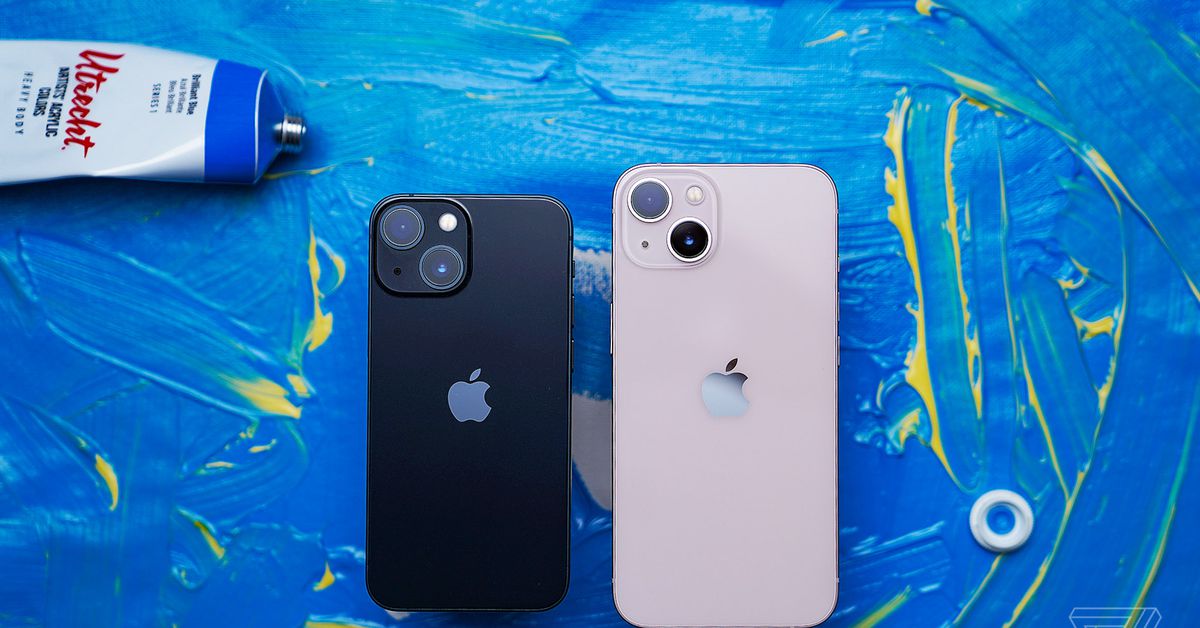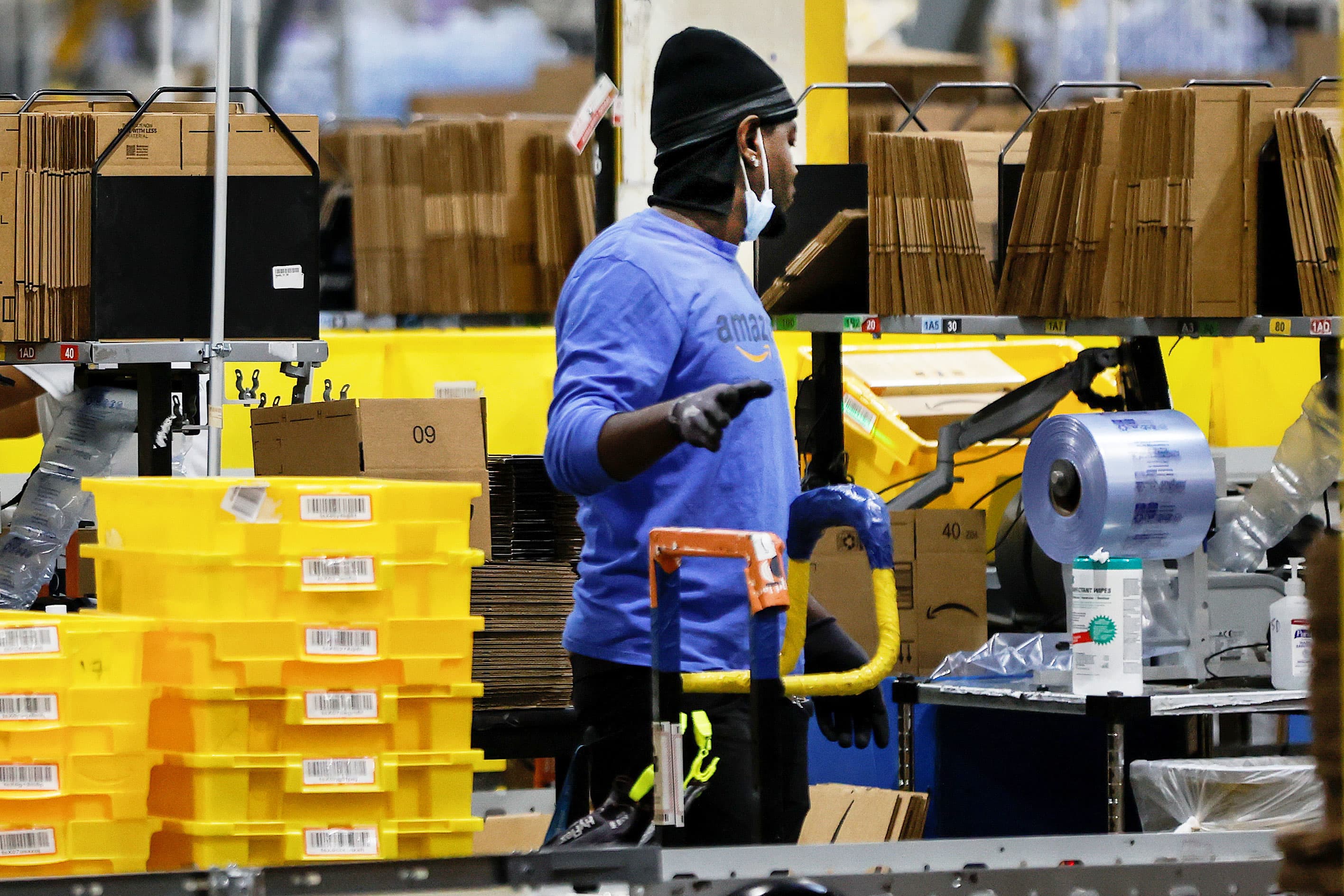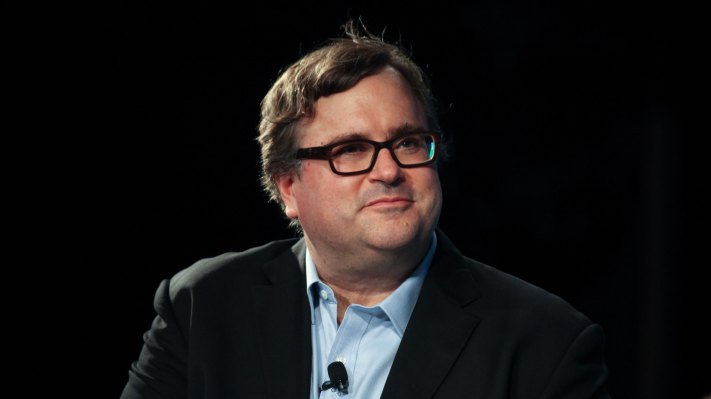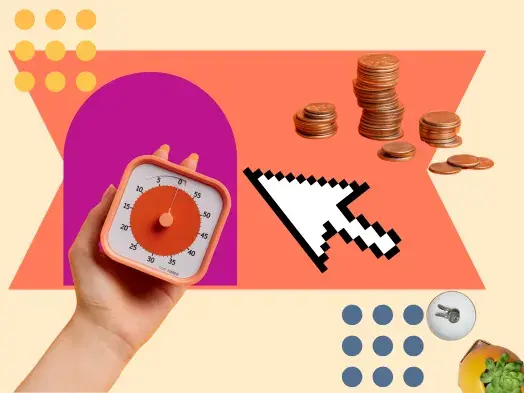RIP to the iPhone Mini — not dead but not updated
The big phones have won. | Photo by Vjeran Pavic / The VergeWell, that’s it then — after just two iterations, Apple seems to be done with the iPhone Mini. Sure, it’ll still sell you a new one; last...

Well, that’s it then — after just two iterations, Apple seems to be done with the iPhone Mini. Sure, it’ll still sell you a new one; last year’s 128GB iPhone 13 Mini is currently available for $599, but the new iPhone 14 lineup doesn’t include any models with the smaller 5.4-inch screen that some people have come to love.
I may be disappointed, but I’m not surprised. Rumors of the Mini’s death have been swirling almost since it debuted in 2020. In early 2021, reports started to surface that Apple had vastly overestimated demand for the phone and had to slash production of it and that it only accounted for single-digit percentages of all iPhone sales.
Perhaps that’s because most people just want inexpensive phones with big screens. According to estimates from Statista, phones with 5- to 5.5-inch screens accounted for around 13.5 percent of units shipped by manufacturers in 2022. Phones with screens bigger than 6 inches, meanwhile, made up 40 percent of shipments. Statista’s data also shows that, over the past few years, fewer and fewer small phones have been shipped, while big phones have been on the rise.
:no_upscale()/cdn.vox-cdn.com/uploads/chorus_asset/file/24003813/Chart.png) It hurts to say it, but you really can’t even see a bump from the Minis here.Data: Statista
It hurts to say it, but you really can’t even see a bump from the Minis here.Data: Statista
When we here at The Verge first reviewed the iPhone 12 Mini, we predicted that it was “going to be a favorite for many.” It seems like the “many” only turned out to be a few, but the bit about being a favorite was dead-on — those of us who like the Mini really like it. It managed to be a 2020-tier flagship phone crammed into the footprint of a mid-2010s device. After years of features, like multiple incredible cameras, 512GB of storage, and bright, HDR displays, only being available in phones with 5.8-inch or (much) larger screens, the Mini finally made them all available in a device you could comfortably use with one hand.
Yes, the Mini had downsides. Even with the 9 percent bump in battery capacity that came with the 13 model, it was never a phone that could get you through a full day of heavy use. And while it may have been able to go feature for feature with its bigger mainline counterpart, it’s hard to imagine that Apple could’ve made a Pro version that was practical.
Still, it was great to have as an option for people who didn’t mind those tradeoffs (or who didn’t mind carrying a little extra bulk in the form of battery banks on the rare occasions when they needed to). And that’s the real magic of the Mini — it fills (or filled, I suppose) a niche that was basically completely abandoned by other manufacturers.
Sure, there are some great Android phones with reasonably sized screens, but they’re not mini. The Asus Zenfone 9 has a 5.9-inch screen, and the Pixel 6A rocks a 6.1-inch display (which my co-worker Allison Johnson recently declared as “the ideal smartphone screen size”). But the Mini’s 5.4-inch screen out-compacts all of those. It’s like comparing a Smart car to a modern Corolla — yeah, Toyota’s version of compact is probably what most people would prefer, but if you want something that’s truly small, you’re not going to be satisfied with it.
Technically, Apple does still sell a phone that’s around the same size as the Mini: the 2022 iPhone SE. (Though, believe it or not, the iPhone 6-era design is actually bigger than the Mini despite having a substantially smaller 4.7-inch screen.) But while the SE has a fair bit to recommend it — iMessage, years upon years of OS updates, Apple’s incredibly fast flagship processor — it’s still obviously a budget model in a way that the iPhone Mini wasn’t. The SE doesn’t get features like dual cameras, MagSafe, Ultra Wideband 5G, or Face ID, and its display is completely outclassed by Apple’s latest tech.
:no_upscale()/cdn.vox-cdn.com/uploads/chorus_asset/file/23980842/Screenshot_2022_08_29_at_17.59.17.png) The iPhone SE is slightly taller, wider, and heavier than the Mini — not to mention slipperier with its rounded corners.
The iPhone SE is slightly taller, wider, and heavier than the Mini — not to mention slipperier with its rounded corners.
My point is that if you have an iPhone 13 Mini and want to upgrade while still keeping the small size, you basically have no options available. And, frankly, that sucks! Sure, it may not be a huge deal now because the iPhone 12 and 13 are still totally fine. But what about in two or three years when they’re beginning to show their age? If Apple sticks with its current lineup and no Android manufacturer steps in to fill the small hole in the market, where are us Mini fans going to go?
I’ve seen the argument that foldables like the Galaxy Z Flip will replace the Mini. And to a certain extent, I understand this point of view. Even current-gen ones take up less vertical space in your pocket than the iPhone Mini, and they could get even slimmer as time goes on.
Pocket feel is only part of the story, though. The Z Flip 4’s main screen is 6.7 inches. While I realize that being able to get such a big screen with a device that doesn’t take up much room is pretty much the entire appeal of the phone for most people, I personally don’t want something that size. Make fun of me if you will (my ego is stronger than my wrists), but I simply find reaching the edges of 6-inch-plus screens to be very uncomfortable. And I’m sure I’m not the only Mini user who constantly flirted with or succumbed to repetitive strain injury issues before switching away from bigger phones.
I am still hanging on to one shred of hope. Earlier this year, my colleague Sean Hollister wrote an article that begged suggested that Apple do one of two things with the iPhone Mini: either start updating it once every two or three years or use its design for the next iPhone SE. Yes, the Mini becoming the budget model would certainly take away some of its charm — but at least it would still get new processors every once in a while, and, as Sean noted, many of us would be willing to trade having the absolute latest and greatest for a phone that actually works with our anatomy.
If Apple is plotting that sort of move, it probably won’t show up in supply chains for a few years. Until it does, or until enough time has passed to truly snuff out any hope, Mini owners can take solace in knowing that our phones will continue to get updates for a while — and in remembering the glorious, if brief, time when Apple brought back the small phone.

 Troov
Troov 































